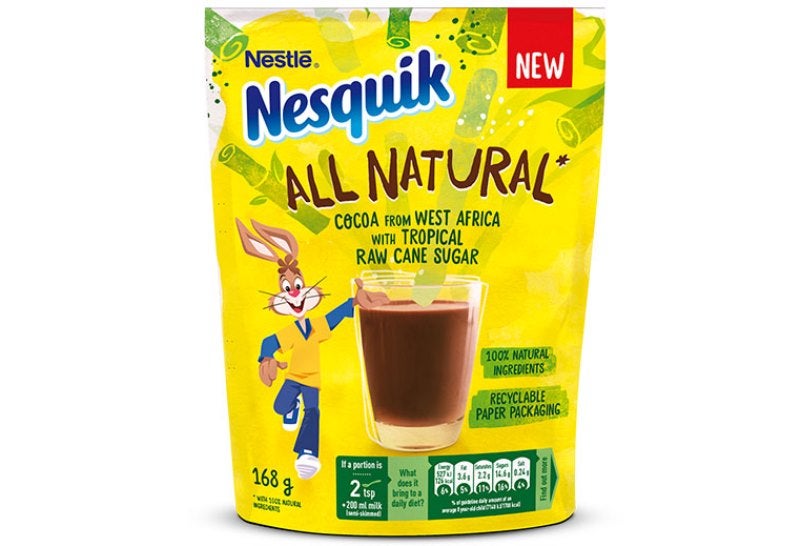
Food and beverages company Nestlé has introduced a Nesquik All Natural powder in a recyclable paper pouch.
The coated paper used in the pouch manufacturing is certified by the Forest Stewardship Council (FSC) and is easily recyclable. It has been derived from sustainable sources.
Nestlé noted that the pouch was tested to ensure it performs well during transportation and storage of the Nesquik powder.
The use of paper packaging is aligned with the company’s commitment to making its packaging recyclable or reusable by 2025.
Nestlé senior brand manager Vittoria Simms said: “We are proud to be able to launch Nesquik All Natural as a new addition to the range, providing parents with an all-natural option with a simplified ingredients list with less sugar and in a recyclable paper packaging.
“This is part of our commitment at Nestlé to offer more natural, sustainable and nutritious choices while maintaining the great taste that people know and love.”
The new Nesquik powder launch follows the company’s proposal to accelerate the fight against plastic waste and it is one of the company’s first products to move from recyclable plastic to recyclable paper packaging.
With five natural ingredients, Nesquik All Natural powder is exclusively available in Tesco UK and will be launched in Sainsbury’s and Asda in May and June respectively.
In October 2019, Greenpeace revealed that Nestlé and Tim Hortons joined Starbucks, McDonald’s and Coca-Cola in the list of top five plastic polluters.
Earlier this year, Nestlé announced an up to CHF2bn (£1.59bn) investment for leading the transition from virgin plastics to food-grade recycled plastics.



